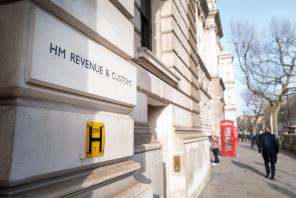

The taxman is clamping down on the promoters and enablers of tax avoidance schemes in an effort to stop situations like the loan charge happening in the future.
Speaking at a Treasury select committee evidence session today (October 22), Penny Ciniewicz, HMRC’s director general of customer compliance, said the department was “doubling the resources” it had involved in tackling those in the 'avoidance supply chain'.
This includes companies and people ranging from the designers of schemes to accountants and financial advisers who recommend the schemes to their clients.
Ms Ciniewicz said: “We have more than 100 current investigations into promoters [and enablers] and we’re keeping a very close eye on the market for avoidance.
“We are spotting schemes as they emerge and we’re tackling them.”
Ms Ciniewicz was responding to Rushanara Ali MP, Labour member for Bethnal Green and Bow, who said part of the reason some consumers found themselves with a hefty loan charge bill was because there had been intermediaries who had promoted tax avoidance schemes to “unsuspecting citizens”.
The loan charge relates to people who worked and received their remuneration through loans, which are not taxable, rather than a salary, which is.
The loans were never intended to be repaid resulting in the tax office treating them as tax avoidance, although the loans were legal at the time.
In the 2016 Budget the government confirmed it intended to ban the practice and have the tax repaid, and those affected by the policy were given an April 2019 deadline to settle or declare their tax bills and failing that would be levied the additional loan charge.
HMRC chiefs also applied the law to previous cases and are pursuing people who used a loan payment scheme as far back as 1999.
Ms Ali asked HMRC: “Do you think HMRC as an institution is spotting emerging cases where new types of promotions are being encouraged?
“What responsibilities are you taking to preempt these things and make sure it doesn’t happen?”
Ms Ciniewicz said part of HMRC's action plan was to handle promoters through investigations into tax avoidance schemes disclosed to it.
The disclosure of tax avoidance schemes rules, which made anyone marketing a scheme disclose it to HMRC, came into force in 2004 but one of the problems was that unless a scheme was disclosed by a promoter, HMRC often didn’t know it existed.
Therefore HMRC has been piloting new ways to find individuals it felt could be getting involved in or attracted to tax avoidance schemes, Ms Ciniewicz told the committee.
She said: “We’re taking a look at what we can see in PAYE or real time information that might indicate people are getting involved in avoidance and we are piloting direct contact with customers to nudge them away from avoidance if we think they might be getting into that space.
“We write to them and we look at how we better publicise some of the details around avoidance schemes.”
Ms Ciniewicz added HMRC was very aware of the need to increase the public’s awareness of the dangers of getting involved in avoidance, stressing that the message remained “if it looked too good to be true, then it probably was”.
The loan charge has come under controversy from MPs, lobby groups and professional bodies as it left many with crippling tax bills and HMRC has reported itself to the police watchdog four times over the deaths of individuals who had been notified of a loan charge bill since it came into effect.
Asked whether HMRC was taking enough measures to prevent further tragedies in today’s hearing, Jim Harra, interim chief executive and permanent secretary at HMRC, said the government agency had “clear policies” in place for any customer who showed signs of distress.
He added: “Clearly we don’t want anyone to harm themselves or feel mental anguish and we recognise this can be a stressful situation.
“We train our front line staff to recognise those signs and we’ve taken extra steps in the counter avoidance space to do that, including putting in place a network of support specialists who can give extra help.”
imogen.tew@ft.com
What do you think about the issues raised by this story? Email us on fa.letters@ft.com to let us know.



